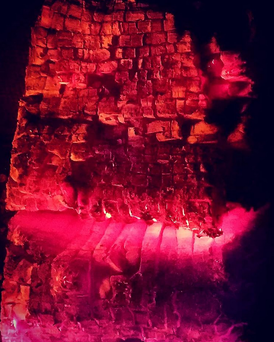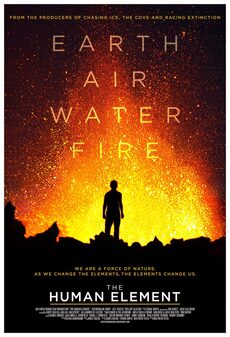|
"In the wilderness, you have left cyberspace behind in one sense, but not in another. You’re still surrounded by it physically, and it continues to offer itself as a possibility of information and communication. Isn’t it Luddite to refuse the offer altogether? Doesn’t a refusal betray a timid failure to come to terms with technology? And aren’t you drawing an arbitrary line through technology? After all, everything you wear and carry is high tech, the fabrics of your clothing and shoes, the poles of your tent, the cooking utensils, the binoculars, the watch, and the map. There are not only questions of consistency but also questions of ethics. You can get lost or injured in the wilderness. If lost, is it responsible to make the Search and Rescue people pay in toil and time for your precious refusal to carry a GPS device not to mention the anxiety you are causing your beloved when you’re not showing up at the appointed time? Similarly, when someone in your party is injured and immobilized, is it right to jeopardize the person’s health or even life while you’re getting help? Shouldn’t you have some electronic device that would have summoned help quickly and effectively? Information technology might also make your hike more deeply informed and moving. Say you carry a device with a camera; you point it at a particular peak, and an app informs you that this is Chief Mountain where, as James Welch tells us at the beginning of Fools Crow, ‘Eagle Head and Iron Breast had dreamed their visions in the long-ago.’ Is such a device much different from a knowledgeable companion and in fact more reliable and better informed than a human could be (though of course incapable of a conversation)? If such a snapshot makes your trip more valuable, why not ‘one day’ not far in the future wear a pair of spectacles from Google’s Project Glass? It won’t be very different or more obtrusive than the sunglasses you’re wearing now. It responds to voice commands and on request projects fourteen icons on your visual field. If you worry about an impending snowstorm that may blind you on your ascent to Stuart Peak, you can call up the weather forecast. If your worry was unfounded and you made the peak, but took a wrong turn on your descent, you call up a map, and it shows you before your very eyes and in vivid detail where to go to reach your campsite. If you suddenly remember a crucial appointment you should have scheduled, you summon your calendar and record a reminder. If on your way down you come upon a lovely flower, unknown to you, you hold it in your gaze and are told: It’s the Mountain Bog Gentian, and here are its interesting facts. As you approach your camp, there is a high-country sunset of ravishing beauty, just the thing to impress and provoke envy in your colleagues. You take a picture and send it to them. But why not send them a continuous video of your entire hike, fine-grained and in three dimensions, complete with audio? In fact on their giant plasma screen with perfect stereo sound, they can share your entire experience, a better experience in fact since they won’t have to suffer your chills and exhaustion and can fast-forward through all the tedious part of hiking and camping. Come to think of it, why not just stay home and rent the perfect wilderness hike video? If exhaustion has to be part of the experience, you can watch it while doing stairs on your stair climber machine. I have traced a trajectory from the reasonable via the plausible to the laughable. It shows us how seemingly inescapable, continuous, and seductive the culture of technology is. You enter the wilderness with reasonable moral concerns, follow the logic of technology, and end up in the gym, watching a screen. It seems that any line you may draw across the trajectory is arbitrary, including the legal line between wilderness and non-wilderness." 1 “Technology as a way of taking up with reality has put the power of technological information in the service of radical disburdenment. At the limit, virtual reality takes up with the contingency of the world by avoiding it altogether. The computer, when it harbors virtual reality, is no longer a machine that helps us cope with the world by making a beneficial difference in reality; it makes all the difference and liberates us from actual reality.” 2 1 Albert Borgmann in The Force of Wilderness Within the Ubiquity of Cyberspace (AI & Society, 2017) 2 Borgmann, Holding On to Reality: The Nature of Information at the Turn of the Millennium. p. 183. Images from•hiking.org/2015/09/27/the-gadget-hiker/
•https://www.gettyimages.com/detail/photo/android-red-dawn-royalty-free-image/1248714443 •https://www.youtube.com/watch?v=PyFN_FYwqvc •https://www.reddit.com/media?url=https%3A%2F%2Fi.redd.it%2Fmpqu13erce611.jpg •https://payload374.cargocollective.com/1/16/527053/9780406/--illustrations-02-LevelUp-05_800.png •https://www.pinterest.com/pin/670121619531984065/ •https://i.ytimg.com/vi/s4SiDIi_gfc/maxresdefault.jpg
0 Comments
I streamed my first ever Facebook Live event last night--a Fireside Chat on Earth Day 2020 focused on the topic: "Which is preferable as an activity (which would you give up if you had to): Fire or Television (including streaming)?"
Watch it here "Homo erectus appeared, roughly 1.8 million years ago. Until recently, the earliest human hearths were dated to about 250,000 B.C.; last year [2012], however, the discovery of charred bone and primitive stone tools in a cave in South Africa tentatively pushed the time back to roughly one million years ago." (source) "The overpowering rise of machinery pains and frightens me; it is rolling along like a thunderstorm, slowly, slowly; but it has taken its direction, it will come and strike."
--Johann Wolfgang von Goethe (1749-1832) as Susanne in Wilhelm Meisters Wanderjahre Last night, I had the opportunity to see this new film starring photographer James Balog, who was previously featured in Chasing Ice. I highly recommend seeing The Human Element if you have the chance. What I really enjoyed about it is how well it evokes and thus makes palpable and sensual the complexities of the human relationship with nature. James and the filmmakers are able to successfully present complex scientific connections and ideas that are often confined to the language and presentation of scientific abstraction--a step too far removed from our animal senses to move us emotionally and thus to move us to action. The Human Element is thus an important contribution in shaping our future.
This need to ground climate change discussion in the terms of immediate sensation has previously been addressed by David Abram. There is a wonderful segment of the film where James sends a camera attached to a weather balloon into the upper atmosphere to sensorially demonstrate just how thin the earth's atmosphere really is. I found it moving and very akin to the kind of evocation that David Abram seems to suggest is needed. A little ironic perhaps since the mediums of film and photography necessarily mediate our senses. Another instance of philosophical interface is in James's consideration of the element of fire. He notes that the internal combustion engine hid fire from our view and thus disclosed our relationship with it. We too easily forget this dynamic process and thus blindly consume the ancient fossil fuels pulled out of the earth to our great collective detriment. This is a fantastic example of what philosopher Albert Borgmann calls the device paradigm. Philosophy aside, The Human Element is an entertaining and scientifically engaged presentation of how humans have become an increasingly significant force of nature. It manages all this without being politically divisive or preachy. Interestingly, it is completely focused on the U.S., often on conservative regions of the country that may deny the scientific evidence for climate change. Hopefully, the film will create room for positive engagement with these populations. The U.S. focus is also important as Americans are the highest per capita emitters of greenhouse gases on earth, and thus need to make the most changes. One downside in leaving out international examples is that some of the regions where the greatest climate change impacts are occurring, like small island states and low-lying countries, such as Bangladesh, are excluded. In sum, this is a beautiful film. Please see and share it with others. |
Chris Dunn, PhD
Researcher, writer, explorer*, photographer, thinker. Wrestling with nature, culture, technology. Archives
July 2024
Categories
All
*When I use the term "exploration", I mean it in a personal sense (discovery for myself, or at a unique moment in time [everywhere after all--even crowded cities--endlessly await rediscovery--by new eyes and in new moments]), not in an absolute sense. With few exceptions (notably Antarctica), almost everywhere on earth has had other people around for a long time (though to varying degrees - high mountain tops or places like the interior of the Greenland Ice Sheet for instance were far less visited and populated, and undoubtedly at least some pockets of the earth were never visited or populated). It is an enlightening experience though when on an isolated ridge in what feels like the middle of nowhere to wonder if anyone has set foot there but never knowing for sure. What is significant is that the landscape itself is left in such a condition that it isn't evident. Some places ought to be kept that way.
|






 RSS Feed
RSS Feed